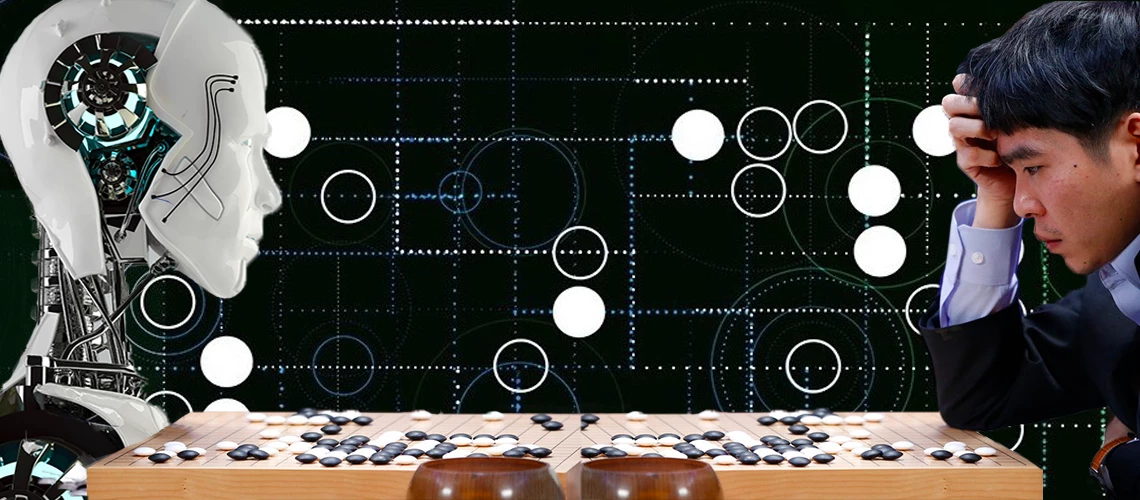Se-dol Lee is a retired 18-time world champion prodigy of the highly complex abstract strategy board game Go. In 2016, a historic match took place in Seoul, Korea, between Lee and AlphaGo – a computer program developed by Deep Mind technologies of Google. The highly anticipated match between the Korean genius Go player and the Artificial Intelligence (AI) powered computer program included five close games.

Lee only managed to win one out of five games – making it one of the very rare cases where a human brain defeated AI. Nonetheless, it was a victory for the computer program. The Korean Go master announced his retirement after this defeat.
Is AlphaGo’s win over Lee a premonition for labor markets’ future? Anxiety over robots have long fueled works of science fiction from Blade Runner to the Terminator franchise. According to a 2018 Pew Research Center survey, large majorities of respondents across the globe are worried that robots and automation will displace human workers. South Korea, for example, has the highest density of robot workers in the world – 631 robots per 10,000 – the most of any nation. It is now a reality that AI and emerging technologies are changing the nature of work. A number of studies, including the World Bank’s World Development Report 2019: The Changing Nature of Work, have done a great job documenting some of the changes that disruptive technologies are bringing to the labor market.
While many studies suggest “what” the future would bring to the labor markets, not as much has been devoted to “how” policies can help prepare for the changing nature of future jobs. While nobody has a crystal ball, the initiatives and efforts taken by the Korean government provide good examples on how policies can help facilitate people’s preparedness for future jobs.
Technologies can be used to improve education and adaptive learning. Virtual Reality (VR) enabled classrooms and skills training are great examples. The University of Technology and Education of Korea (KOREATECH) is delivering Virtual Reality enabled training. Such training is used for repeated practicing of disassembling or reassembling equipment without actual – often expensive or large scale -- equipment, or developing skills in hazardous tasks. Ecuador, supported by the World Bank, has adopted similar training in collaboration with the KOREATECH. At the same time, education and training programs should also foster increased digital dexterity and soft skills necessary as well as the field of science and technology for workers to succeed. Several partnerships between the World Bank and Korean agencies help our client countries strengthen such efforts. For example, the World Bank and Partnership for skills in Applied Sciences, Engineering and Technology (PASET) aims to support skills development in information, communication and technology (ICT) in many African countries, in collaboration with Korean educational institutions.
Labor market information systems and job matching/intermediation policies can also utilize the big data and analytics made available by the advances in technology. The Korean Labor Market Information System, building on the country’s robust information technology, supports its Public Employment Service. It brings technological advancements like big data analysis and AI into the system to enable improved efficiency and accuracy of the service platforms. This helps job seekers receive well-customized information for their own needs, vocational training, and on-the-job support.
It is also notable that different public employment information platforms in Korea are connected and interoperable for efficient employment services as well as for big data analytics to inform labor and skills policies. For instance, job-training portal, the HRD-net, providing information on vocational training courses, qualification tests, and key statistics related to vocational training, is connected with a job matching platform, the Work-net. This way, job seekers can access to both training and job market information at the same time that are appropriate for the individual profile and preference. Such interoperability extends to Employment Insurance (EI) system where firms and individual workers detailed information on the history of work and training as well as insurance contributions is stored.
During the upcoming Korea Innovation Week, the World Bank’s Education and Social Protection and Jobs Global Practices will highlight Korea’s success in embracing innovation and technology to improve outcomes for the workers of the future. If planned smartly, robots, AI, big data, and automation can create a frontier of new opportunities. Now more than ever, partnerships between the World Bank, the Government of Korea, and client governments are an important building block to create an equitable future for all.


Join the Conversation